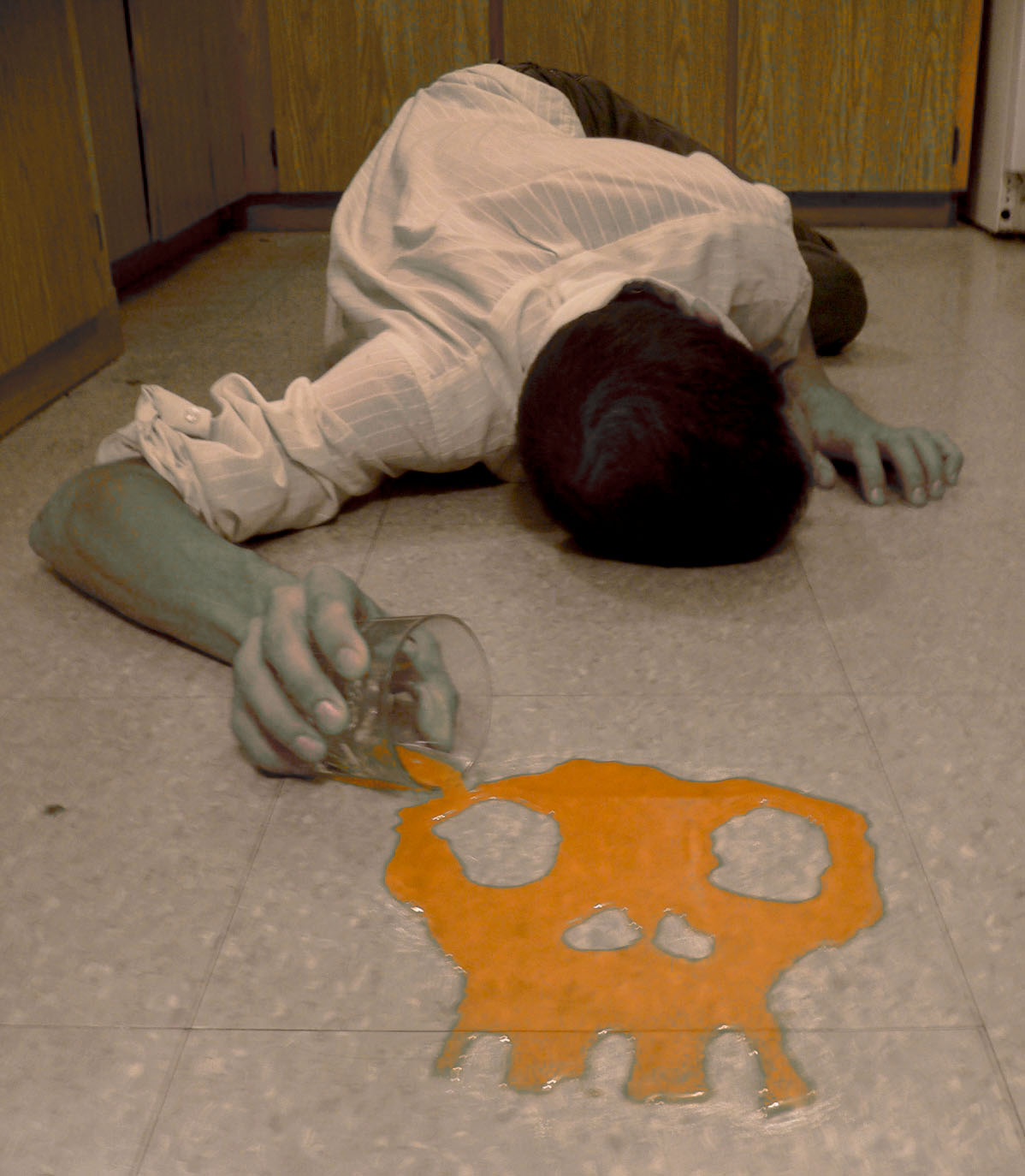A couple of weeks ago I ran into a barfblog reader who commented to me, ‘You’re really scared of botulism, aren’t you?’ This wasn’t a random question, it was related to a few things I had posted following over 20 illnesses linked to a potluck dinner at Cross Pointe Free Will Baptist Church in Lancaster, Ohio.
Scared isn’t how I would describe it. Rattled and in awe of are probably better terms. The toxin blocks motor nerve terminals at the myoneural junction, causing paralysis. It starts with the mouth, eyes, face and moves down through the body. It often results in paralysis of the chest muscles and diaphragm, making a ventilator necessary. Months of recovery follow an intoxication.
Maybe I am scared.
There isn’t a whole lot of botulism in the U.S. every year, and not all of it is foodborne – (infant botulism is more common); over the past two decades, improperly home preserved foods are the main source.
Any case is notable.
Earlier this year there was a botulism illness in Ashe County, North Carolina that was
The case was first reported during a panel at the NC Food Safety and Defense Task Force annual meeting. Rose Hoban of North Carolina Health News captured the highlights.
It only took one bite.
Five days later, an Ashe County woman lay in the hospital, on a ventilator, unable to breathe.
Home canning food has a technical aspect to it that’s dangerous to ignore, said Ben Chapman from N.C. State University.
The woman, who’s name has not been released, told health officials she didn’t even swallow the carrot. She opened the home-canned jar of carrots, tasted one, decided it looked and tasted off, and spit it out.
But that was enough to give her botulism, sending her to the hospital for an 11-week stay.
She was lucky there was an off flavor, said Ben Chapman, a food-safety expert from N.C. State University.
“The toxin itself doesn’t have the sensory attributes that we associate with spoilage,” Chapman said this week at a presentation about the case during a meeting of the Governor’s Task Force on Food Safety and Defense that was held at the N.C. Biotechnology Center in Research Triangle Park.
Chapman said the procedure the woman had used to treat the carrots may have left some other bacteria behind that created the off taste. But her canning technique was not correct, which also left behind botulism spores in her carrots.
She was fortunate to have ingested a small enough amount that her hospital stay was relatively short compared to what happens in many botulism cases, Chapman said.
And he offered the story as a cautionary tale as we head into the main growing season when many people pull out pots and jars to preserve the fruits of the season.
It took several days for a possible diagnosis of botulism poisoning to show up in the woman’s medical record, said Nicole Lee, an epidemiologist from the state Department of Health and Human Services. The woman’s daughters and a friend told doctors that she canned her own food. Before she was intubated, the woman said she suspected the carrots.
But doctors also needed to rule out a stroke or other neurological problems. It took more than a week for doctors to tell state health officials that they suspected botulism.
“That immediately got our attention,” said Lee. “We had gotten wind that this person was canning her own food. We weren’t sure if these items were being sold in commerce or across state lines.”
“I was on my way to Morganton and I got a call to divert,” recounted Susan Parrish, a food regulatory supervisor for the state Department of Agriculture and Consumer Services.
Parrish, who monitors food outbreaks around the state, was given the carrots by one of the woman’s friends.
“They were in a quart jar,” said Parrish, who put on a biohazard suit to handle it. “Obviously, she had only tasted a bite, because the jar was full.”
A sample of the carrots was shipped to the Food and Drug Administration.
The results came back from the FDA “barely positive,” said the FDA’s Mancia Walker. “But with [botulism], barely positive is like a little bit pregnant.”
“This was a tragic mistake that can happen to anyone not using proper canning procedures,” he said, explaining that the woman had not pressure canned the carrots, which would have created temperatures high enough to kill botulism spores.
“There are very passionate people who are maybe not doing canning with science-based recommendations,” said Chapman, who has studied how people preserve food.
He said that when he’s asked canners where they learned to can, they tell him the knowledge has been passed down rather than learned in a home economics class or a workshop that’s strong on the science.
“We’ve seen in other cases where [a] family link perpetuates error,” said Chapman, who said there are plenty of books, classes and online instructions from agricultural extension services.





 It was over when she farted at the dinner table and kept on eating like nothing happened.
It was over when she farted at the dinner table and kept on eating like nothing happened. The district court rejected the 49-year-old woman’s argument that she was forced to drive 53 mph in a 43 mph zone because of her digestive issues, Swedish news agency TT reported Thursday.
The district court rejected the 49-year-old woman’s argument that she was forced to drive 53 mph in a 43 mph zone because of her digestive issues, Swedish news agency TT reported Thursday. Apparently I wasn’t alone. A poll by
Apparently I wasn’t alone. A poll by  The
The